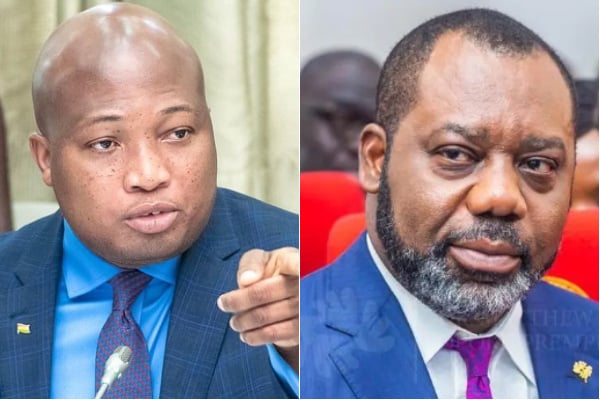Samuel Okudzeto Ablakwa, the Member of Parliament for North Tongu, publicly rejected accusations made by Dr. Matthew Opoku Prempeh, commonly referred to as Napo, regarding the development of a pro-LGBTQ curriculum during Ablakwa’s tenure as Deputy Minister of Education. These statements were made during a campaign rally on October 5, 2023, in Kumasi-Bantama, where Napo, who is also the running mate for the New Patriotic Party (NPP) flagbearer Dr. Mahamudu Bawumia, claimed that upon becoming the Minister of Education, he discovered an LGBTQ-inclusive curriculum supposedly created by the opposition National Democratic Congress (NDC). Napo further alleged that Ablakwa and the NDC had collaborated with religious leaders like pastors and imams to disseminate this curriculum across Ghana, implying a coordinated effort to promote LGBTQ rights within the country’s educational system.
In response to these charges, Ablakwa labeled Napo’s statements as unfounded and politically motivated fabrications aimed at distracting the public from a failing political campaign. He emphasized the need for accountability and challenged Napo to substantiate his claims. Ablakwa requested that Napo provide tangible evidence, including the alleged pro-LGBTQ curriculum and the names of any religious figures who purportedly supported its promotion. By making this call for transparency, Ablakwa not only sought to clear his name but also aimed to redirect the discourse back to substantive political issues rather than personal attacks.
Ablakwa’s social media post reiterated his position and included a pointed challenge, stating, “I challenge him to produce the pro-LGBTQ curriculum he claims I prepared.” His insistence on the need for Napo to present verifiable proof highlights the broader political context in which such accusations are made, indicating that they may have more to do with electoral strategy than with factual debate. Furthermore, Ablakwa’s mention of engaging in prayer for Napo suggested that he perceived his opponent as struggling not just politically but also personally as his campaign faltered.
The exchange reflects the heightened tensions and polarization that often characterize Ghanaian politics, particularly around contentious issues such as LGBTQ rights. Ablakwa’s assertion that Napo’s claims were “desperate concoctions” underscores the broader fear among opposition figures that political narratives can be manipulated for electoral gain. This incident highlights how the discourse surrounding LGBTQ issues can become a flashpoint in political campaigns, with each side leveraging moral and social narratives to appeal to their respective voter bases.
The implications of this accusation extend beyond personal rivalry, touching on national conversations about LGBTQ rights in Ghana, a country known for its conservative stance on such matters. The potential for misinformation or exaggerated claims to influence public perception and policy is considerable, raising questions about the integrity of political discourses. As Ablakwa continues to respond to Napo’s allegations, it remains crucial for both politicians and the electorate to engage with fact-based discussions rather than allowing politically expedient narratives to dominate the conversation.
In conclusion, the clash between Ablakwa and Napo illustrates the intersection of politics, social issues, and electoral strategies within Ghana. As the political landscape heats up ahead of elections, the manipulation of sensitive topics such as LGBTQ rights could significantly impact public discourse and voter attitudes. This moment serves as a reminder of the importance of truth in political dialogue, especially in a society where misinformation can easily sway public opinion and influence the direction of policy-making, underscoring the necessity for leaders to prioritize transparency and accountability in their engagements.














